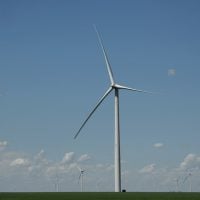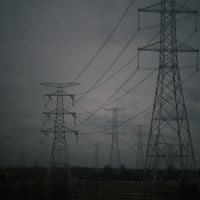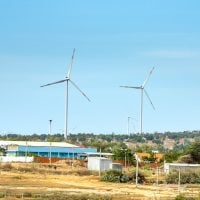Energy inequality is a pressing issue that affects millions of people in developing countries, where access to reliable and affordable energy remains a significant challenge. In many regions, particularly in sub-Saharan Africa and parts of South Asia, a substantial portion of the population lacks access to electricity. This disparity not only hampers individual quality of life but also stifles economic growth and development.
The World Bank estimates that around 789 million people worldwide still live without electricity, with the majority residing in developing nations. This lack of access to energy exacerbates poverty, limits educational opportunities, and hinders healthcare services, creating a vicious cycle that is difficult to break. The consequences of energy inequality extend beyond mere inconvenience; they have far-reaching implications for social equity and environmental sustainability.
In many cases, communities rely on traditional biomass fuels for cooking and heating, which can lead to health issues due to indoor air pollution. Furthermore, the absence of reliable energy sources limits the potential for technological advancement and innovation, leaving these regions at a disadvantage in an increasingly interconnected world. Addressing energy inequality is not just a matter of providing electricity; it is about empowering communities, fostering economic resilience, and promoting sustainable development. Are You Working on Solar Innovation or Clean Energy Access? Join us to receive updates.
Key Takeaways
- Energy inequality in developing countries is a significant issue that hinders economic development and quality of life for millions of people.
- Donor support plays a crucial role in addressing energy inequality by providing funding and resources for energy projects in developing countries.
- Top donors, such as international organizations and wealthy nations, have a key role in championing energy equality and driving initiatives to address the issue.
- Energy equality has a direct impact on economic development in developing countries, as access to reliable energy sources is essential for growth and prosperity.
- Key initiatives supported by top donors in developing countries include funding for renewable energy projects, infrastructure development, and capacity building programs.
The Importance of Donor Support in Addressing Energy Inequality
Donor support plays a crucial role in addressing energy inequality in developing countries. Financial assistance from international organizations, governments, and philanthropic entities can help bridge the gap between energy supply and demand. By investing in infrastructure projects, renewable energy initiatives, and capacity-building programs, donors can facilitate access to energy for underserved populations.
This support is particularly vital in regions where local governments may lack the resources or expertise to implement effective energy solutions. Moreover, donor support can catalyze partnerships between various stakeholders, including non-governmental organizations (NGOs), private sector actors, and local communities. These collaborations can lead to innovative approaches to energy access that are tailored to the specific needs of each community.
For instance, donors can fund pilot projects that test new technologies or business models, which can then be scaled up if successful. By providing the necessary financial backing and technical assistance, donors can help create a more equitable energy landscape that empowers individuals and communities.
The Role of Top Donors in Championing Energy Equality

Top donors have a unique opportunity to champion energy equality by leveraging their resources and influence to drive meaningful change. Organizations such as the United Nations Development Programme (UNDP), the World Bank, and various bilateral aid agencies have made significant commitments to improving energy access in developing countries. These institutions not only provide funding but also offer expertise in project design and implementation, ensuring that initiatives are effective and sustainable.
One notable example is the Global Energy Facility, which was established by the World Bank to support countries in achieving universal access to electricity by 2030. This initiative focuses on financing renewable energy projects and enhancing energy efficiency while promoting policy reforms that encourage investment in clean energy technologies. By prioritizing energy equality, top donors can help create a more inclusive global economy where all individuals have the opportunity to thrive.
The Impact of Energy Equality on Economic Development
The impact of energy equality on economic development cannot be overstated. Access to reliable energy sources is essential for driving industrial growth, creating jobs, and improving overall living standards. When communities have access to electricity, they can engage in productive activities such as small-scale manufacturing, agriculture, and services that require power.
This not only boosts local economies but also contributes to national economic growth. Furthermore, energy equality enhances educational opportunities by enabling students to study after dark and access digital learning resources. Improved healthcare services are also a direct benefit of increased energy access, as medical facilities can operate essential equipment and provide better care.
In essence, achieving energy equality is a foundational step toward fostering sustainable economic development and reducing poverty in developing countries.
Key Initiatives Supported by Top Donors in Developing Countries
Several key initiatives supported by top donors have made significant strides in promoting energy equality in developing countries. One such initiative is the Sustainable Energy for All (SE4ALL) program launched by the United Nations. This global initiative aims to ensure universal access to modern energy services, improve energy efficiency, and increase the share of renewable energy in the global energy mix.
Through partnerships with governments and private sector actors, SE4ALL has mobilized resources to implement projects that directly address energy inequality. Another noteworthy initiative is the Power Africa program led by the United States Agency for International Development (USAID). This program focuses on increasing electricity access across sub-Saharan Africa by supporting the development of renewable energy projects and enhancing grid infrastructure.
By fostering public-private partnerships and providing technical assistance, Power Africa has successfully facilitated investments that have brought electricity to millions of people who previously lived without it.
Case Studies of Successful Donor-Funded Energy Equality Projects

Real-world examples of successful donor-funded projects illustrate the transformative potential of targeted interventions in addressing energy inequality. One such case is the Solar Home Systems project in Bangladesh, which was supported by various international donors including the World Bank and the Global Environment Facility. This initiative provided solar panels to rural households that lacked access to electricity from the national grid.
As a result, over four million homes now benefit from clean and affordable solar energy, improving living conditions and enabling economic activities. Another compelling case is the Energizing Finance initiative in Nigeria, which aims to increase access to electricity for underserved communities through innovative financing models. Supported by multiple donors including the UK’s Department for International Development (DFID), this project has successfully mobilized private sector investment to develop off-grid solar solutions.
By demonstrating the viability of these models, the initiative has paved the way for further investments in renewable energy across Nigeria.
Challenges and Obstacles Faced in Promoting Energy Equality
Despite significant progress made by donors and organizations working towards energy equality, numerous challenges persist. One major obstacle is the lack of infrastructure in many developing countries, which can hinder the delivery of energy services. In remote areas where roads are poor or non-existent, transporting materials for energy projects becomes a logistical nightmare.
Additionally, political instability and corruption can undermine efforts to implement effective energy solutions. Another challenge lies in ensuring that energy projects are sustainable and equitable. There is often a risk that initiatives may prioritize short-term gains over long-term sustainability or fail to engage local communities adequately.
Without community involvement and ownership of projects, there is a higher likelihood of failure or underutilization of resources. Addressing these challenges requires a multifaceted approach that includes stakeholder engagement, capacity building, and robust monitoring and evaluation mechanisms.
The Need for Sustainable and Renewable Energy Solutions in Developing Countries
As the world grapples with climate change and environmental degradation, there is an urgent need for sustainable and renewable energy solutions in developing countries. Traditional fossil fuel-based energy sources contribute significantly to greenhouse gas emissions and environmental harm. In contrast, renewable energy technologies such as solar, wind, and hydropower offer cleaner alternatives that can help mitigate climate change while providing reliable power.
Investing in renewable energy not only addresses immediate energy needs but also promotes long-term sustainability by reducing dependence on finite resources. Moreover, renewable energy projects often create local jobs and stimulate economic growth within communities. For instance, solar panel installation requires skilled labor for maintenance and operation, creating employment opportunities while empowering individuals with new skills.
The Role of Public-Private Partnerships in Advancing Energy Equality
Public-private partnerships (PPPs) play a vital role in advancing energy equality by combining resources and expertise from both sectors. These collaborations can lead to innovative solutions that address complex challenges related to energy access. For example, private companies can bring technical know-how and investment capital while public entities can provide regulatory support and facilitate community engagement.
One successful example of a PPP is the collaboration between the government of Kenya and private solar companies to expand access to off-grid solar solutions in rural areas. By leveraging private sector innovation alongside public sector support, this partnership has enabled thousands of households to gain access to clean electricity while fostering local entrepreneurship through solar distribution networks.
The Future of Donor Support for Energy Equality in Developing Countries
Looking ahead, donor support for energy equality in developing countries is likely to evolve as new challenges emerge and priorities shift. As climate change becomes an increasingly pressing issue, there will be greater emphasis on funding renewable energy projects that align with global sustainability goals. Donors will need to adapt their strategies to focus on innovative financing mechanisms that attract private investment while ensuring equitable access for marginalized communities.
Additionally, there will be a growing recognition of the importance of integrating gender considerations into energy initiatives. Women often bear the brunt of energy poverty; therefore, empowering women through targeted programs can lead to more effective outcomes in achieving energy equality. By prioritizing gender equity alongside energy access, donors can create more inclusive solutions that benefit entire communities.
The Continued Efforts of Top Donors in Promoting Energy Equality
In conclusion, addressing energy inequality in developing countries requires sustained efforts from top donors who are committed to promoting equitable access to reliable energy sources. Through targeted initiatives, innovative partnerships, and a focus on sustainability, donors can make a significant impact on improving living conditions and fostering economic development in underserved communities. As we move forward into an era marked by climate change challenges and technological advancements, it is imperative that donor support continues to evolve and adapt to meet the needs of those most affected by energy inequality.
By championing initiatives that prioritize renewable energy solutions and engaging local communities in decision-making processes, top donors can help pave the way for a more equitable future where everyone has access to clean and affordable energy. The journey toward achieving global energy equality may be fraught with challenges; however, with continued commitment from donors and stakeholders alike, it is a goal within reach that promises transformative benefits for millions around the world.









































